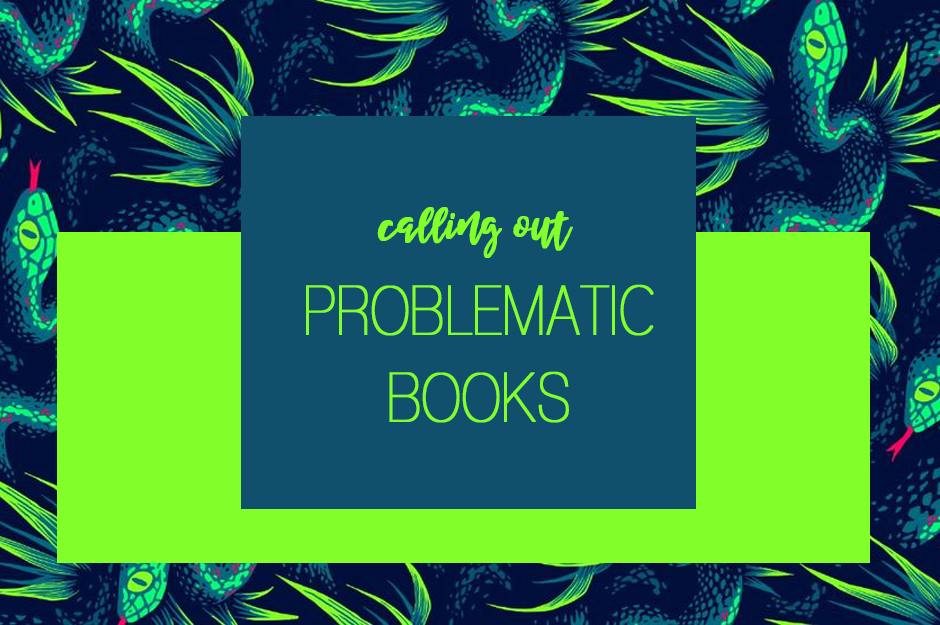
Hello friends!
Due to the crazy amount of responses we’ve been seing on the internet regarding a push back against sensitivity readers (whaaaaaaaat?) and what not, I decided to write a guide on how to behave if your book gets called out.
First of all, let’s sort some things straight. SENSITIVITY READERS ARE NECESSARY. They’re not some weird gatekeepers who are not letting you pass. They’re trying to make your book better and more inclusive. When you write, you should worry about your readers and what impact your book will have on them. And note that I don’t mean only your white, cis, heterosexual readers — it impacts every reader you might possibly have. Read this piece on sensitivity reading and why it’s so important before you can say anything else.
So you wrote a book. It’s being published. Everything is great!
Then it gets called out. Its representation is bad, and lots of people are commenting how the book is racist/homophobic/ableist. How do you react?
1. GET OFF THE INTERNET!
Take some time away before you get the urge to reply.
2. DO NOT REPLY TO ANY OF THE CRITICS!!!!
Seriously, just don’t. Don’t reply to any of it. Don’t ask your husband or friends to reply. Just let it be. People have the right to feel upset if your book has offended them.
3. DO NOT EXCUSE IT IN ANY WAY
You know that urge you have to reply? That urge to say “well I did it because this this and that”? Do not give in to it. Ignore it. Take some time away. Don’t start twitter threads with ‘explanations’ because believe me, you will not get anywhere.
4. Talk to your friends.
I’m sure you have friends who are marginalized or have suffered from wrongfully done representation before. This is the best time to reach out to them and ask for counsel. They won’t get angry, I promise. They’ll try to help, because you’re a friend and you’re doing your best.
What they won’t do is defend you against this kind of thing. Remember, it’s not a personal attack.
5. Apologize.
Craft an apology post/letter. Instead of replying personally, it might be easier to just post it on the website. Ask for forgiveness and say you’ll do better in the future. Don’t “I’m sorry people were offended”, but try to say something like “I’m sorry I have offended anyone with this”. That’s pretty much it.
Don’t try to “address” the book problems, saying where you got your inspiration or giving any justification at all. Often it feels like you’re trying to exclude yourself from the narrative (a la Taylor Swift) and honestly, it just doesn’t look good. Apologize simply for the harm caused, but don’t go into specifics. If anyone asks you on your website or anything else, DO NOT ANSWER. Keep your thoughts to the ones closest to you.
6. Do better.
Doing better includes hiring sensitivity readers in the future. Doing better is trying to be more inclusive and more aware of issues around you and if your readers might be affected by your portrayal. Sensitivity reading or having a disability is not a shield in any way – and it shouldn’t be used as such. We’re all humans, of course, but we must try and do our best when it comes to writing.
Remember, writing an accurate portrayal is just a regular part of writing. It’s literally a part of your job as a writer. It’s okay to mess things up, but we must do better for our readers’ sakes.
People who are critiquing your work are not a ‘mob’ or the like, they’re trying to do their best to protect teens from hard. There’s no “ganging up” here, just someone pointing out the faults and how it could be done better. It’s not censorship, not policing, not anything else. But writing, much like all our actions, have consequences, and a writer must think of them all. It’s their job.
If there’s time to fix your book, that’s great! Talk to your publishers and get some sensitivity readers. That’s pretty much all everyone is asking.
